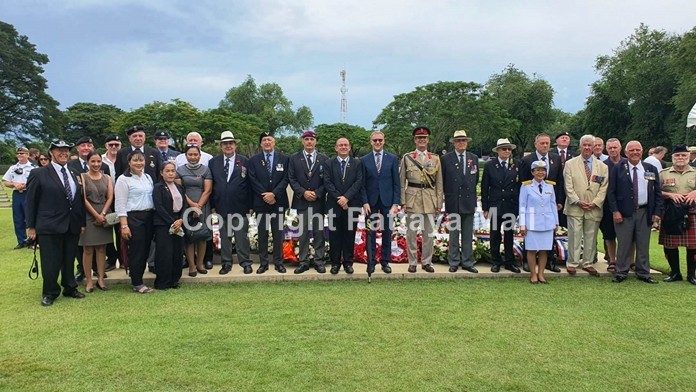
A Commemorative Ceremony of Remembrance was held at the Chungkai War Graves in Kanchanaburi on 15 August 2020 to honour the brave soldiers and civilians of British, Commonwealth and Allied Forces, without whom victory and the freedoms and way of life we enjoy today would not have been possible.
Andrew Barraclough officiated the ceremony with delegations from the British Embassy led by H.E. Brian Davidson, the Dutch Embassy led by H.E. Kees Rade, the Royal British Legion Thailand, and other groups who had come to pay their respects to the WWII fallen heroes.
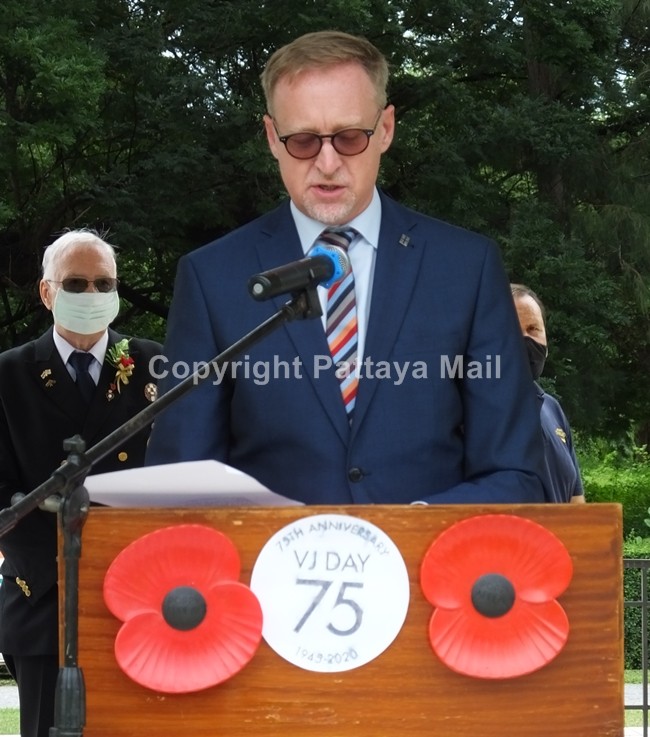
The ceremonies commenced with the reading of the Declaration by Andrew Barraclough followed by Maurice Rooney’s Pathway to Chungkai read by H.E. Brian Davidson. The ceremony continued with the Exhortation read by Robert Mann, Chairman of the Royal British Legion, Thailand.
The laying of the wreaths and Richard Holmes, the RBL Thailand Standard Bearer, lowering the Legion Standard during the Last Post were sombre and emotional moments.
The Act of Commitment, The Lord’s Prayer and the Blessing brought the emotionally charged 75th VJ Day commemorative service to a close.
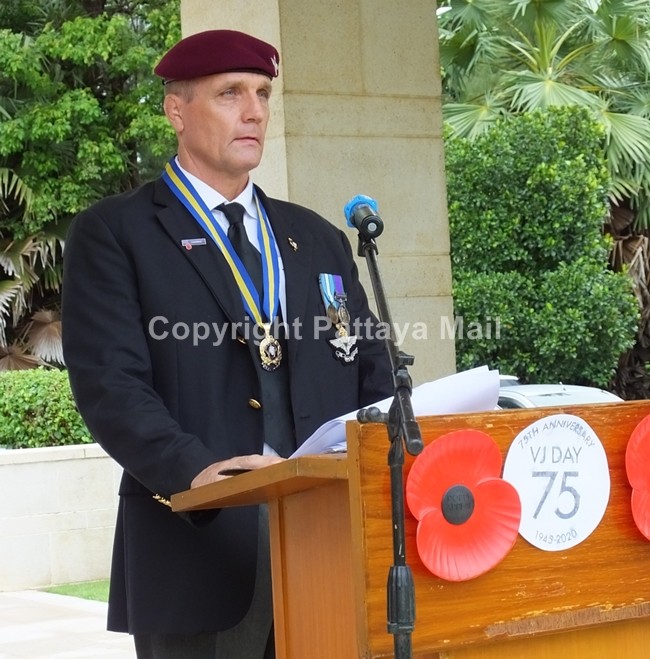
VJ Day
Victory over Japan Day on 15 August marks the surrender of Japan forces, which ended the Second World War. For months after VE Day on 8 May 1945 war continued to wage in the Asia-Pacific region. It only came to an end after two atomic bombs were dropped on the Japanese cities of Hiroshima and Nagasaki.
The conditions during the Far East campaign were very different from those during the war in Europe. British, Commonwealth and Allied troops fought across oceans, in monsoon drenched jungles, on snow-covered hills, and in scorching tropical heat on remote islands.
But for the British and Commonwealth forces, the war against Japan was marked by extremes.
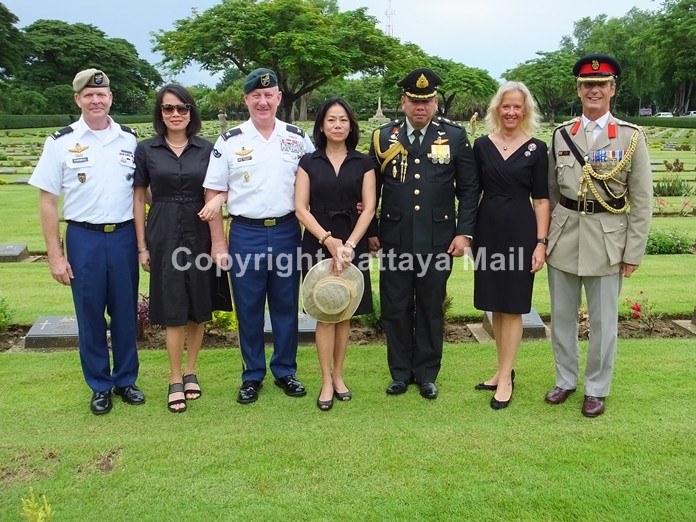
The British, Commonwealth and Allied soldiers were shocked and angered by the Japanese treatment as they were expected to treat Allied captured prisoners of war humanely. Held in appalling conditions, the prisoners were subjected to brutal treatment in established jails, mines and makeshift jungle labour camps throughout South East Asia.
The Japanese viewed the prisoners as expendable labour for their war effort and thousands died building roads, bridges, and working on other Japanese projects. The most notorious project was the Burma-Thailand railway or ‘Death Railway’. Opened in October 1943, it covered over 1,250 miles and cost the lives of over 15,000 prisoners of war and 80,000 native labourers.
The conditions, punishing climate, and lack of adequate food and medicine also led to thousands more deaths from cholera, dysentery, and malaria.
The graves of those who died during the construction and maintenance of the Burma-Siam railway (except for the Americans, whose remains were repatriated) were transferred from camp burial grounds and isolated sites along the railway into three cemeteries at Chungkai and Kanchanaburi in Thailand and Thanbyuzayat in Myanmar.
Chungkai was one of the base camps on the railway and contained a hospital and church built by Allied prisoners of war. The war cemetery is the original burial ground started by the prisoners themselves, and the burials are mostly of men who died at the hospital.
There are now 1,426 Commonwealth and 313 Dutch burials of the Second World War in this cemetery.
The legacy of VJ Day continues to this day as 75 years on families and descendants of the fallen gathered at the Chungkai War Graves in Kanchanaburi to participate in a Commemorative ceremony of Remembrance for the contribution of all British, Commonwealth and Allied Forces.
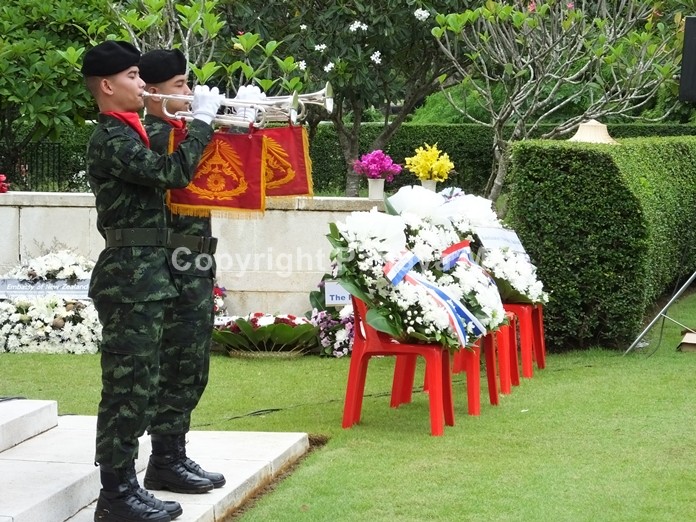
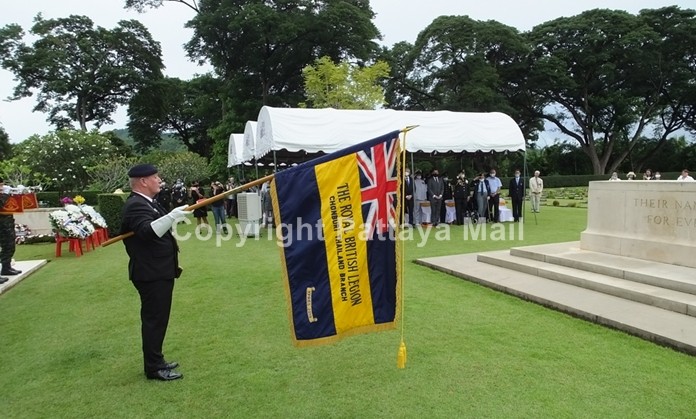
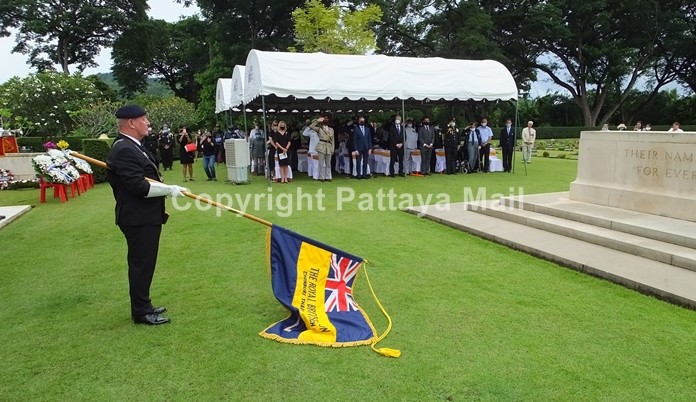
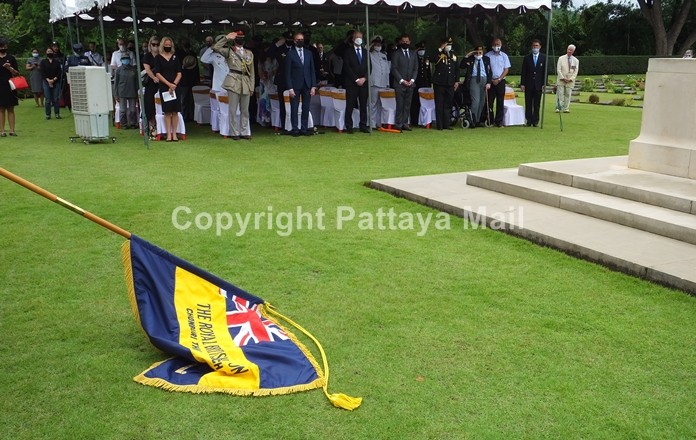
Pathway to Chungkai
By Maurice Rooney
Now that we have strolled along the pathway
Up from the river to the graves at Chungkai
To witness the solitude and beauty
Of the cemetery where a Son and Brother lie.
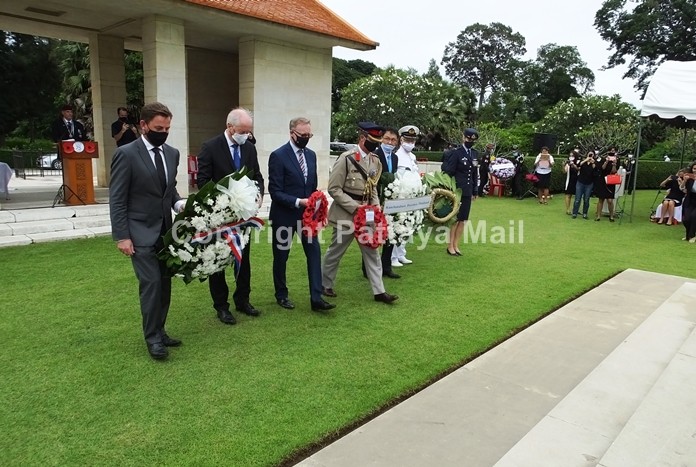
And we who’ve made this special journey
A pilgrimage we all have shared
Wonder why so many perished
While we who returned were spared.
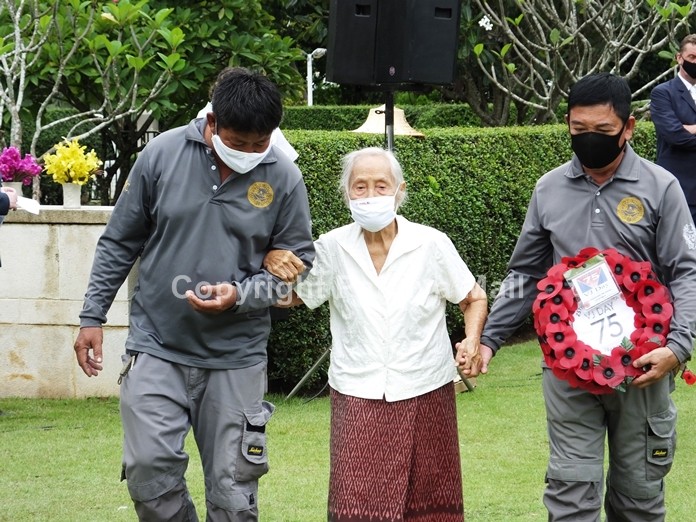
Flowers, shrubs and trees have been planted
Tended with care through all the years
Plaques with name and epitaph printed
We read through freely flowing tears.
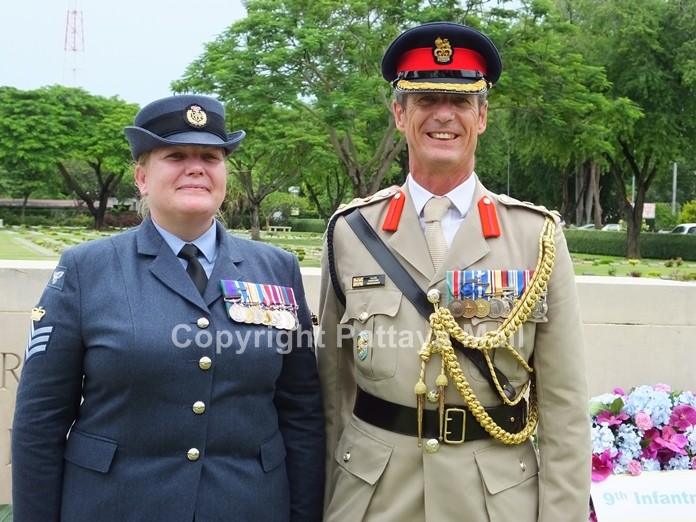
The prison camps have all now vanished
Grown over by jungle and lost in time
But the graves we see are grim reminders
Of men who were taken in their prime
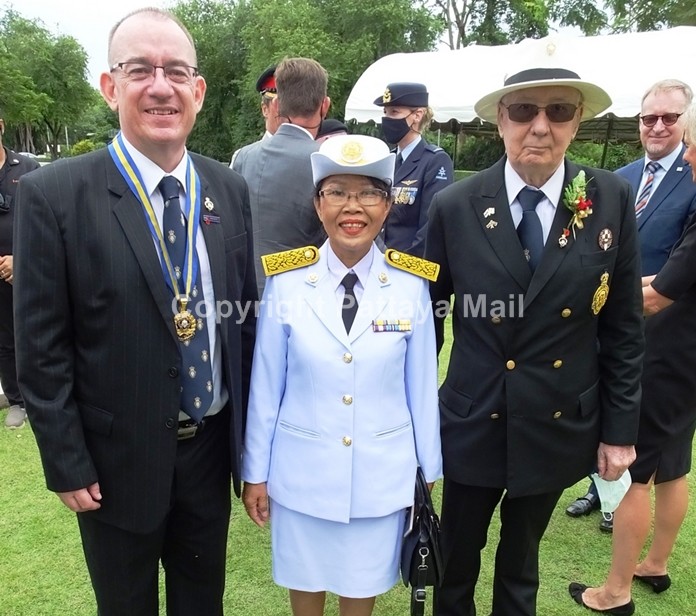
We have this feeling he knows of our presence
Just why it’s hard to explain
But our journey has achieved a sense of purpose
To be with him just for a while again
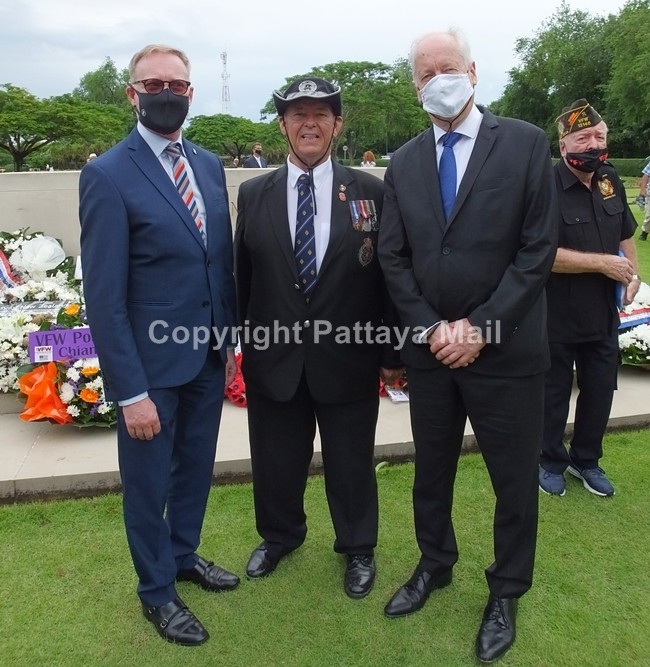
And all those who sleep out here in Thailand
And other Far East war graves o’er the sea
Will never ever be forgotten
By us who live on, forever free

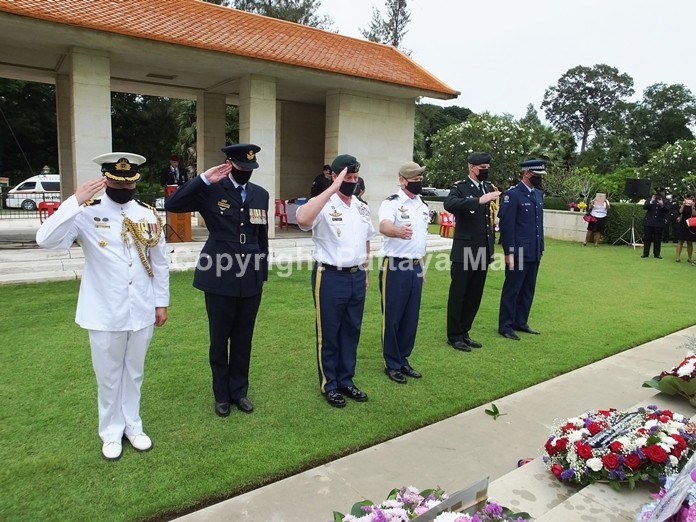
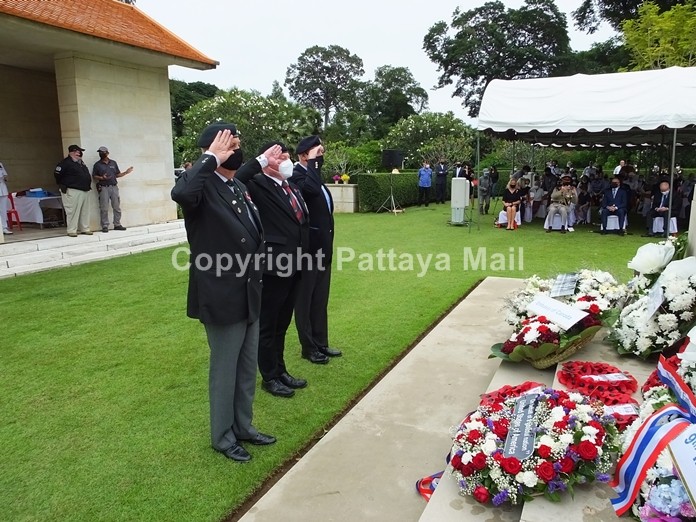
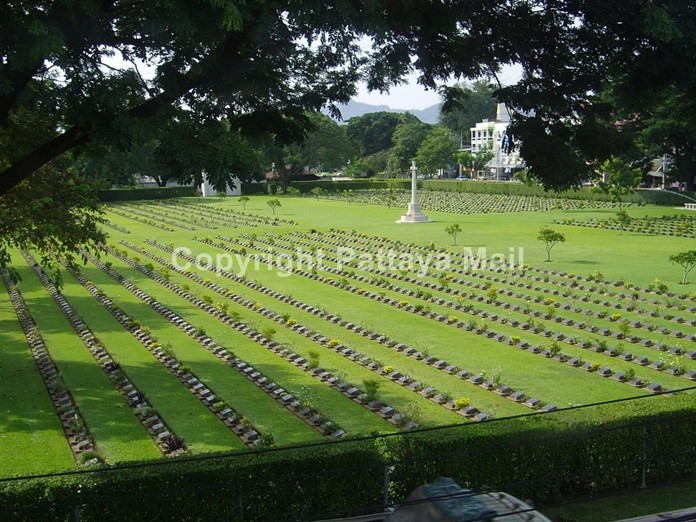
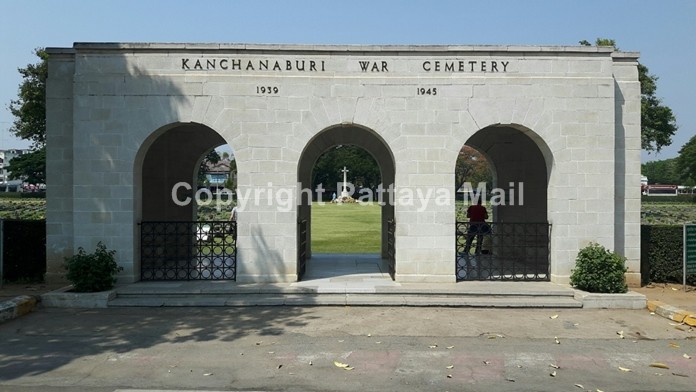
 |
 |
 |





